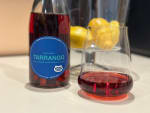WSET3 Palate Notes
Tastes Like:
Marsanne is a white grape variety originating from the Rhône Valley in France, where it is often blended with Roussanne. It is known for producing full-bodied, aromatic wines with a rich texture and a range of flavors.
What you can expect to taste and smell?
Marsanne wines typically exhibit aromas of ripe stone fruits such as apricot and peach, often accompanied by floral notes of honeysuckle and sometimes hints of citrus.
Cool vs. Warm Climate
Cool Climate: In cooler climates, Marsanne retains higher acidity levels, which balance its inherent richness and provide a refreshing quality. It tends to exhibit more pronounced floral aromas and a tighter structure.
Warm Climate: Warmer climates result in riper fruit flavors and a fuller body in Marsanne wines. This can enhance its textural qualities, making it more voluptuous with lower acidity but richer flavors.
Appellations / Producers of Note
France: Marsanne is widely planted in the Northern Rhône Valley, particularly in Hermitage, Crozes-Hermitage, and Saint-Joseph appellations. Producers like Chapoutier and Jaboulet are renowned for their Marsanne wines.
Australia: In Australia, particularly in Victoria and the Barossa Valley, Marsanne is also cultivated, often blended with Roussanne and Viognier.
United States: Some producers in California, particularly in regions like Paso Robles and Santa Barbara County, are experimenting with Marsanne, producing varietal and blended wines.
Age-worthiness
Marsanne wines are enjoyable in their youth, showcasing their fruit-forward characteristics and floral aromatics.
High-quality Marsanne wines can age gracefully, developing more complex flavors of honey, nuts, and toast over time. They can evolve for 5-10 years or more, gaining in texture and depth.
First Published: Monday, Jun 10, 2024 Last updated: Mar 12, 2025
If you're a wine enthusiast like me ... follow my adventures, learn about grapes or winemaking.
read more




